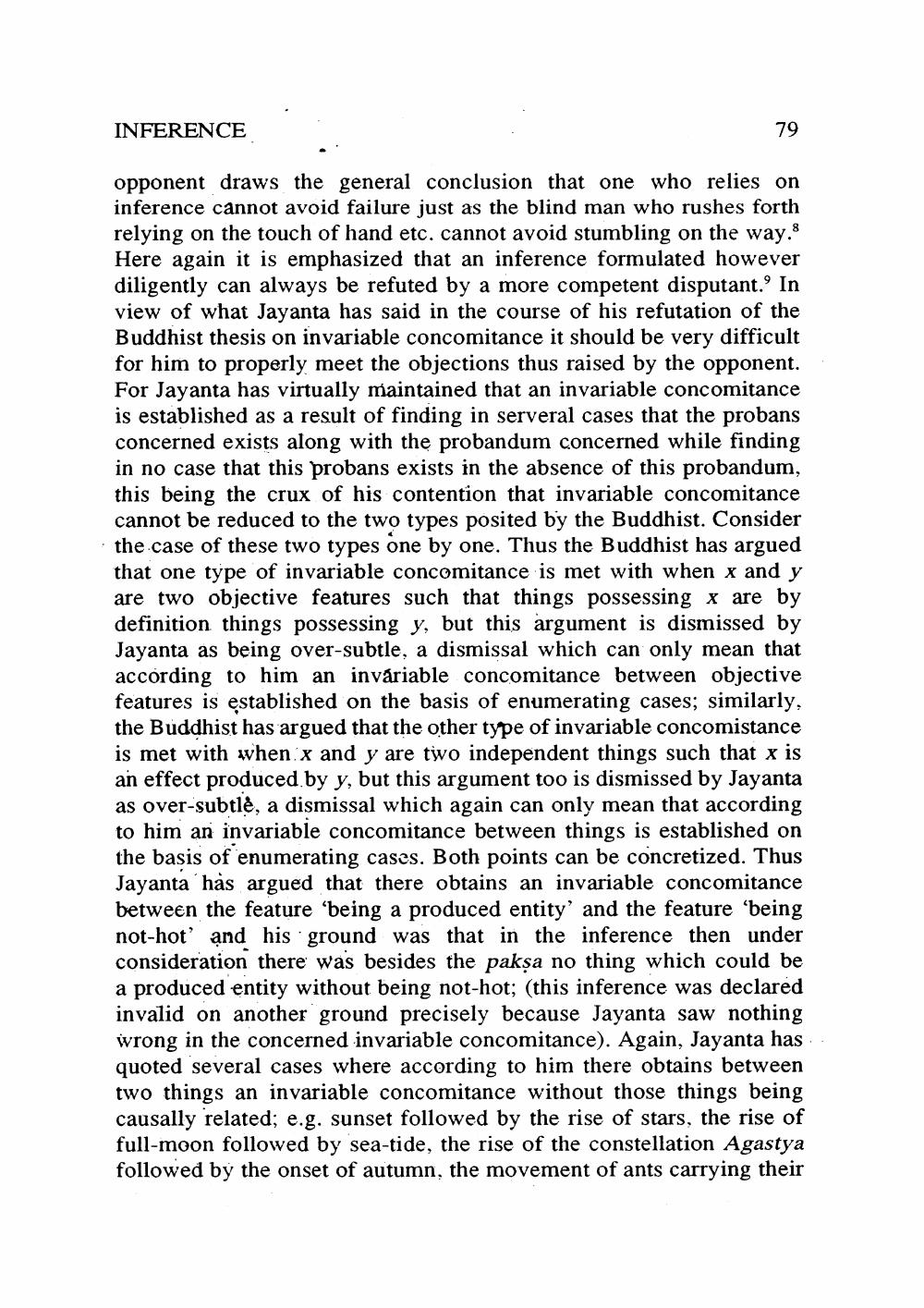________________
INFERENCE
79
opponent draws the general conclusion that one who relies on inference cannot avoid failure just as the blind man who rushes forth relying on the touch of hand etc. cannot avoid stumbling on the way.8 Here again it is emphasized that an inference formulated however diligently can always be refuted by a more competent disputant. In view of what Jayanta has said in the course of his refutation of the Buddhist thesis on invariable concomitance it should be very difficult for him to properly meet the objections thus raised by the opponent. For Jayanta has virtually maintained that an invariable concomitance is established as a result of finding in serveral cases that the probans concerned exists along with the probandum concerned while finding in no case that this probans exists in the absence of this probandum, this being the crux of his contention that invariable concomitance cannot be reduced to the two types posited by the Buddhist. Consider the case of these two types one by one. Thus the Buddhist has argued that one type of invariable concomitance is met with when x and y are two objective features such that things possessing x are by definition things possessing y, but this argument is dismissed by Jayanta as being over-subtle, a dismissal which can only mean that according to him an invariable concomitance between objective features is established on the basis of enumerating cases; similarly, the Buddhist has argued that the other type of invariable concomistance is met with when x and y are two independent things such that x is an effect produced by y, but this argument too is dismissed by Jayanta as over-subtle, a dismissal which again can only mean that according to him an învariable concomitance between things is established on the basis of enumerating cases. Both points can be concretized. Thus Jayanta has argued that there obtains an invariable concomitance between the feature 'being a produced entity' and the feature 'being not-hot' and his ground was that in the inference then under consideration there was besides the paksa no thing which could be a produced entity without being not-hot; (this inference was declared invalid on another ground precisely because Jayanta saw nothing wrong in the concerned invariable concomitance). Again, Jayanta has. quoted several cases where according to him there obtains between two things an invariable concomitance without those things being causally related; e.g. sunset followed by the rise of stars, the rise of full-moon followed by sea-tide, the rise of the constellation Agastya followed by the onset of autumn, the movement of ants carrying their




